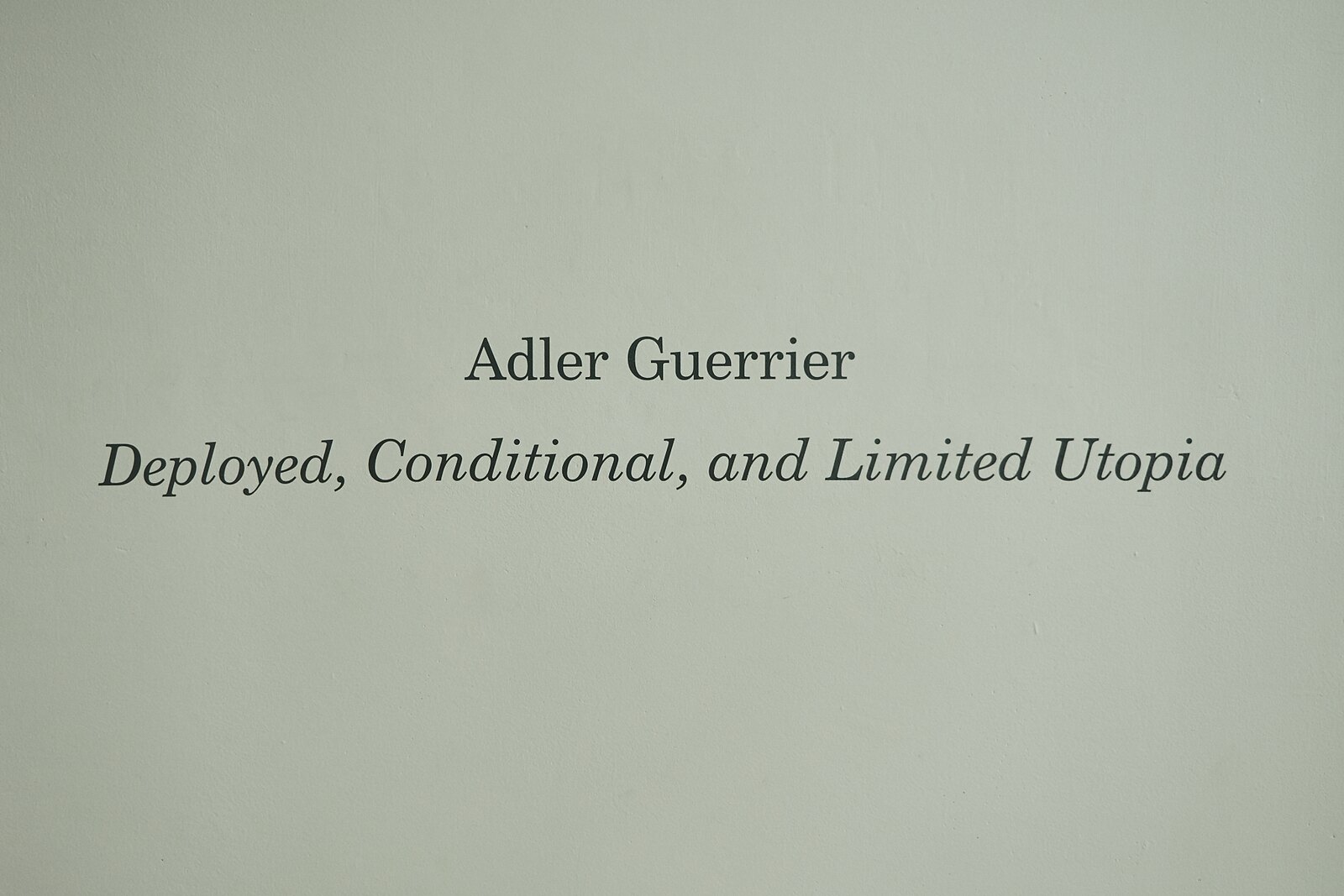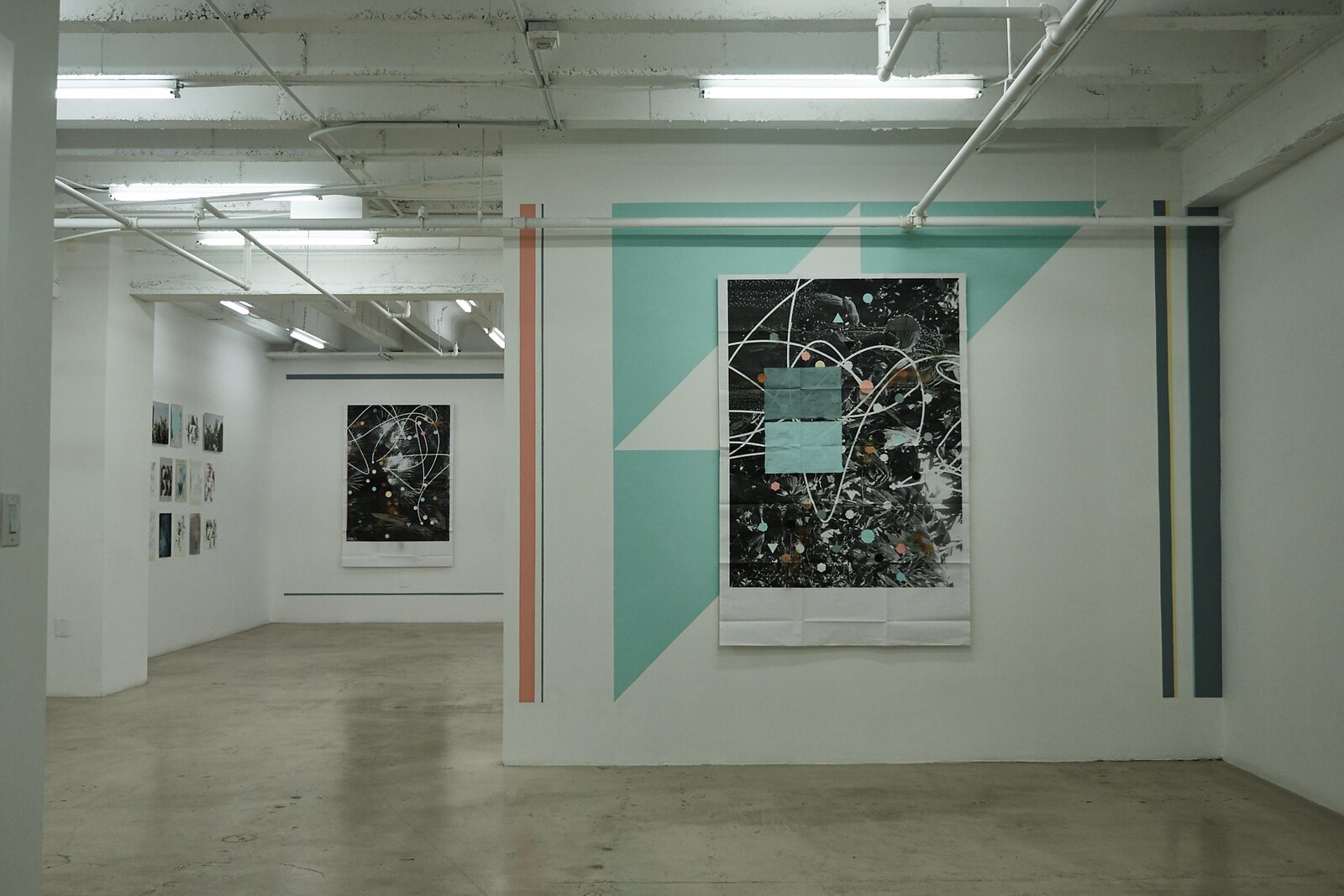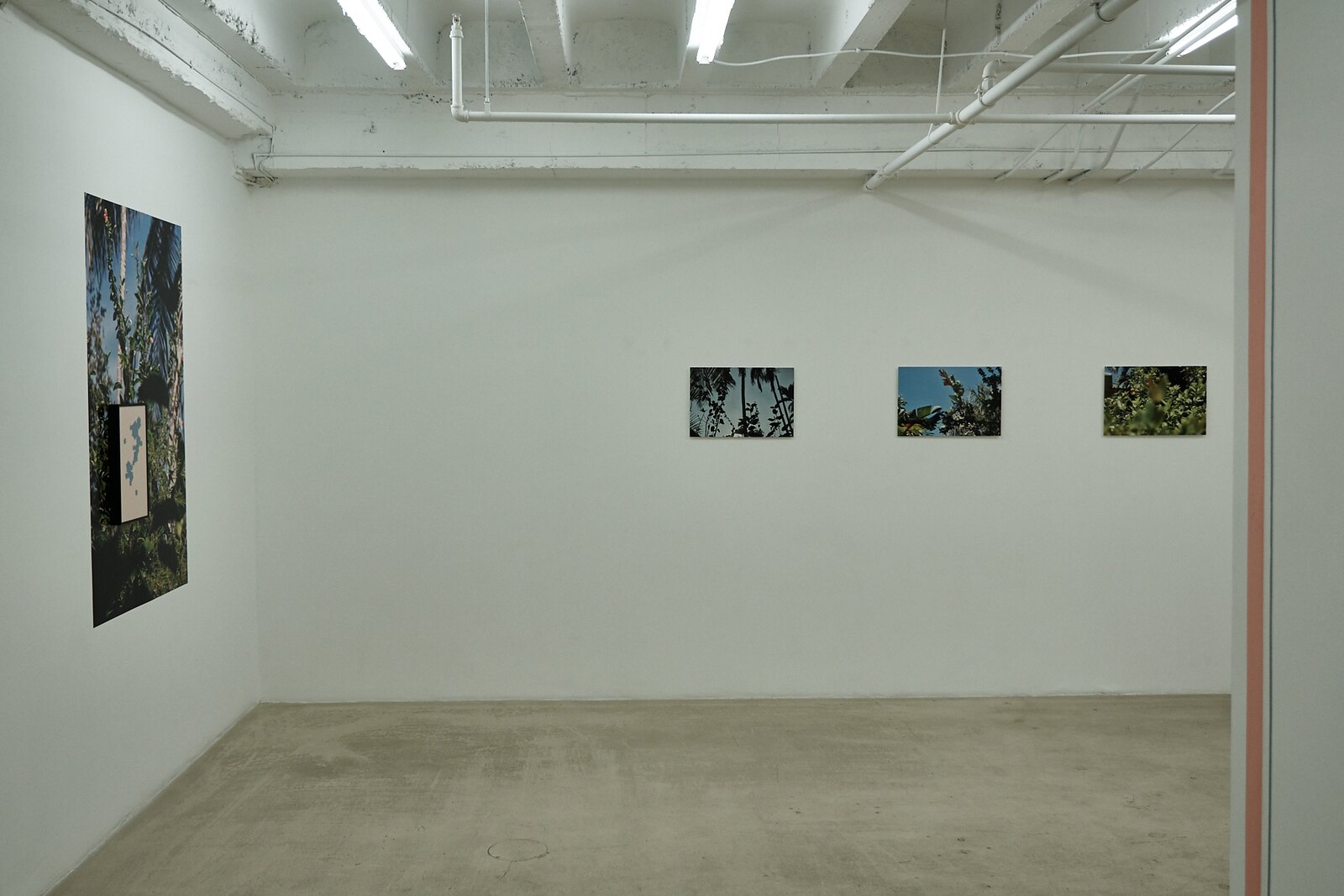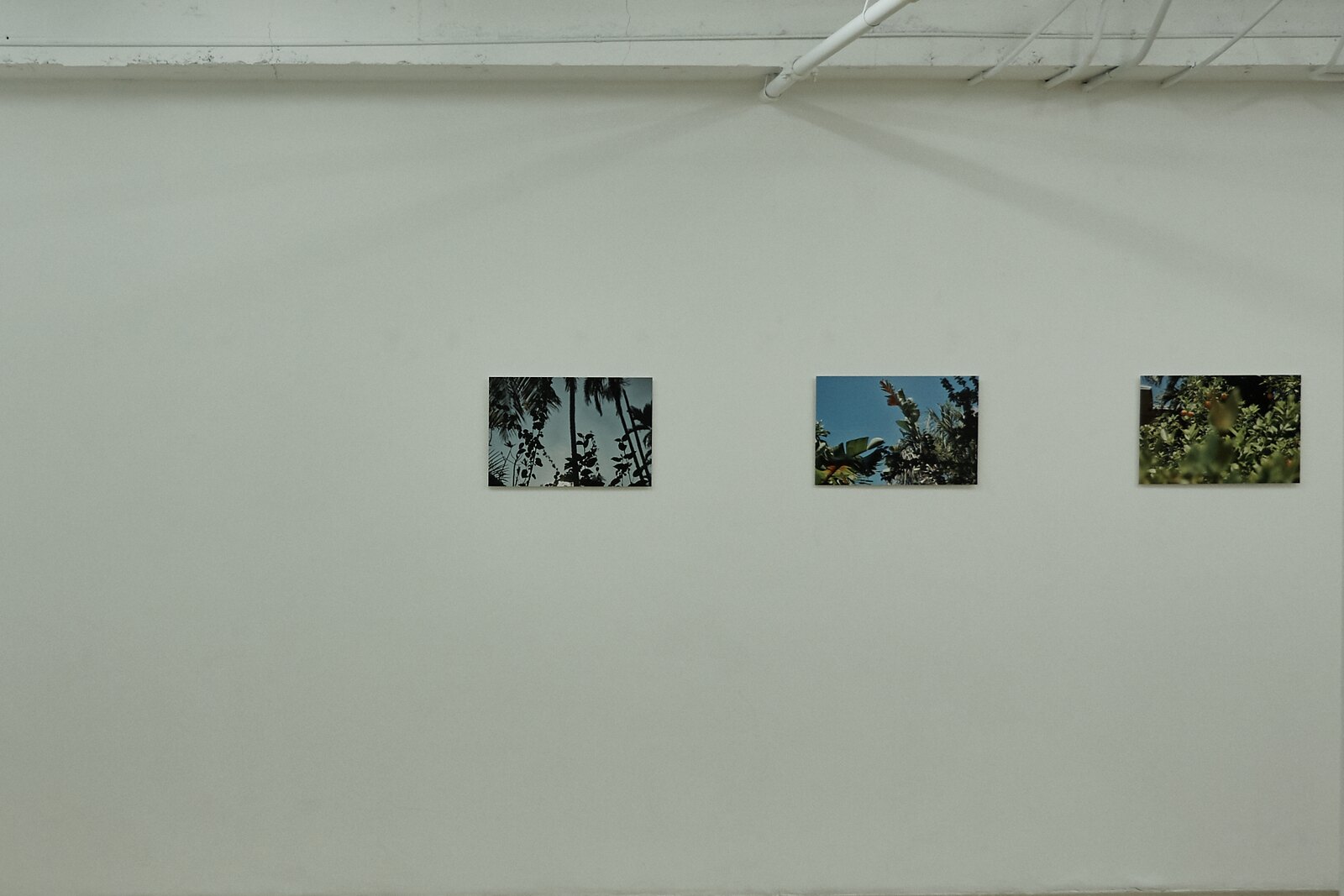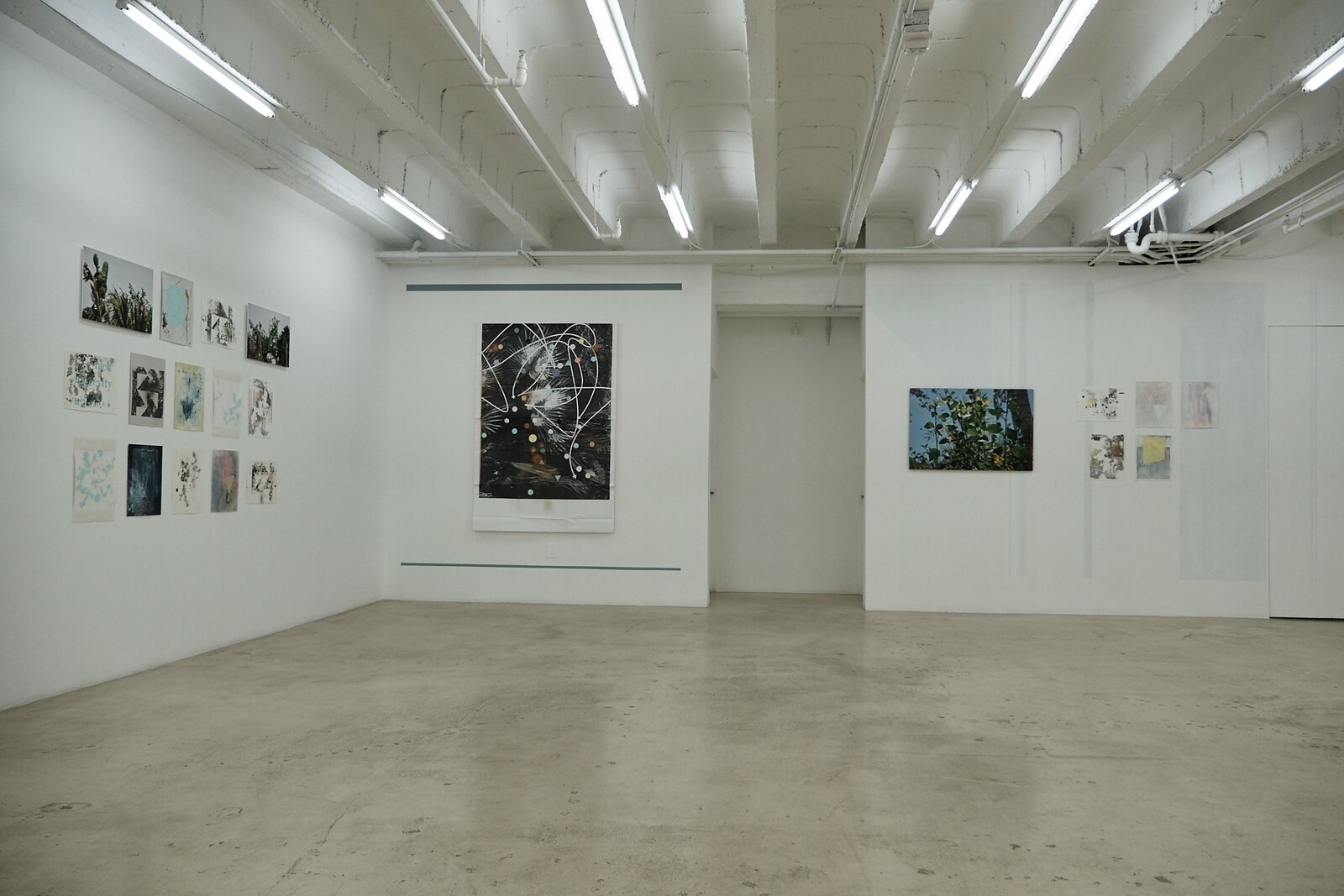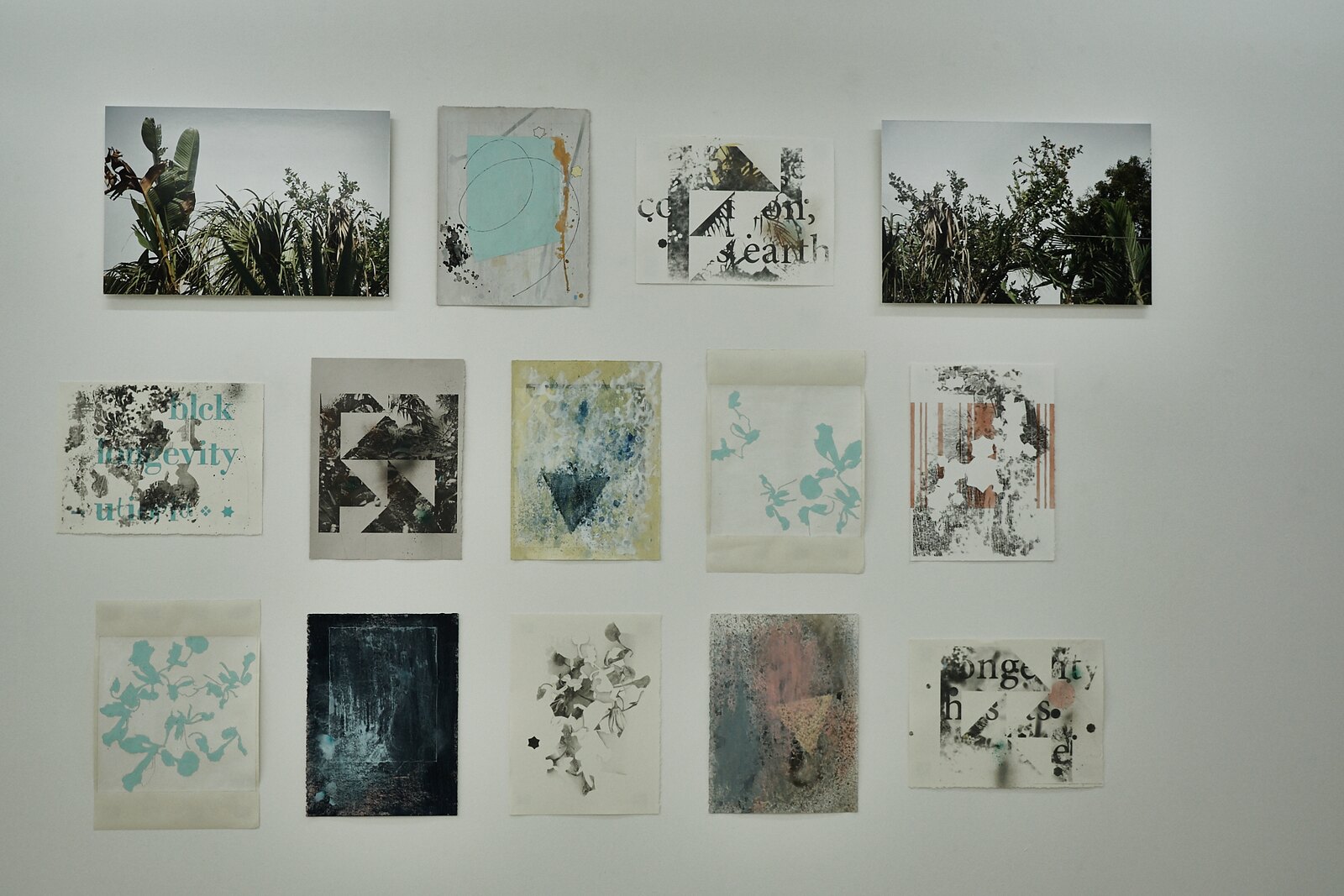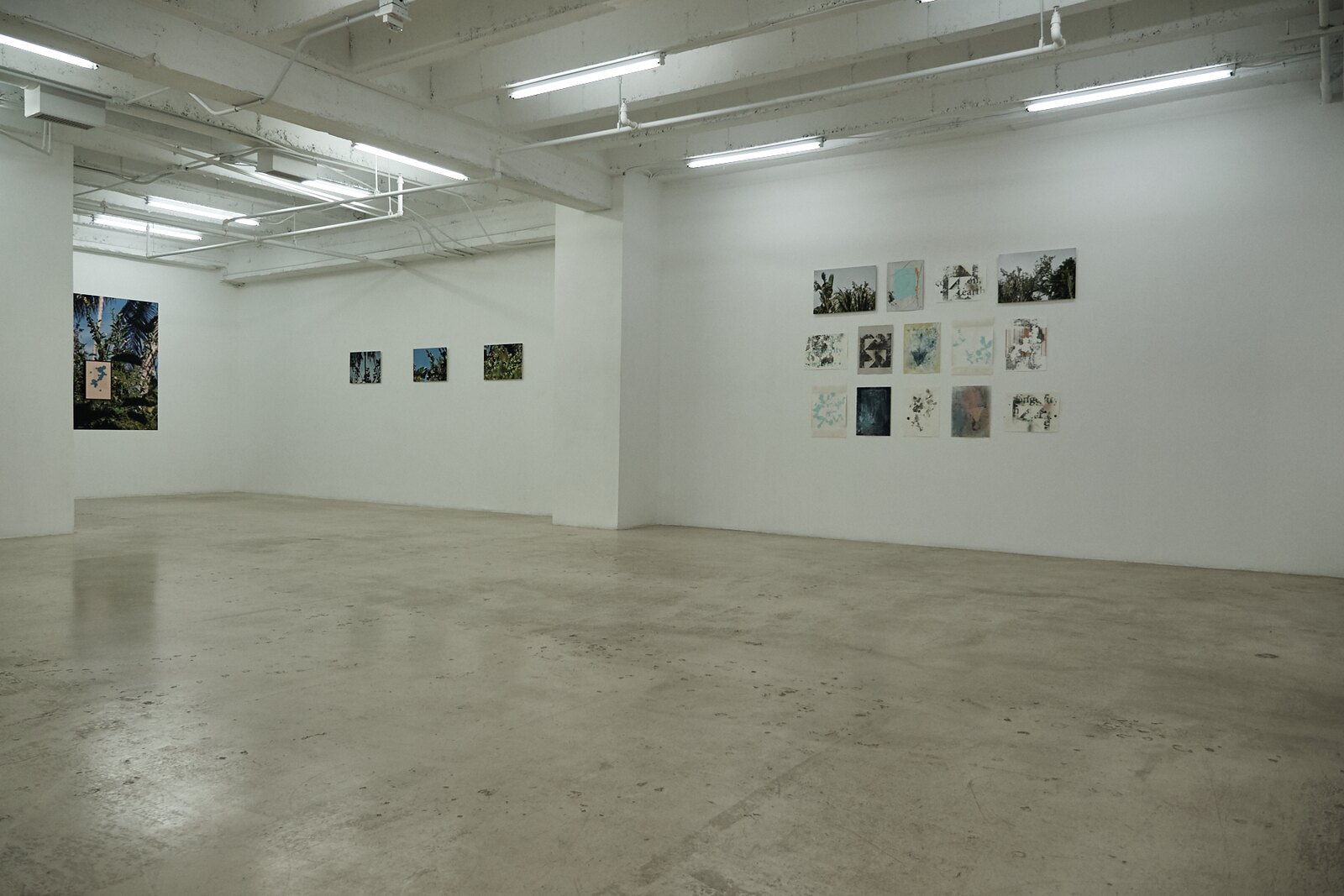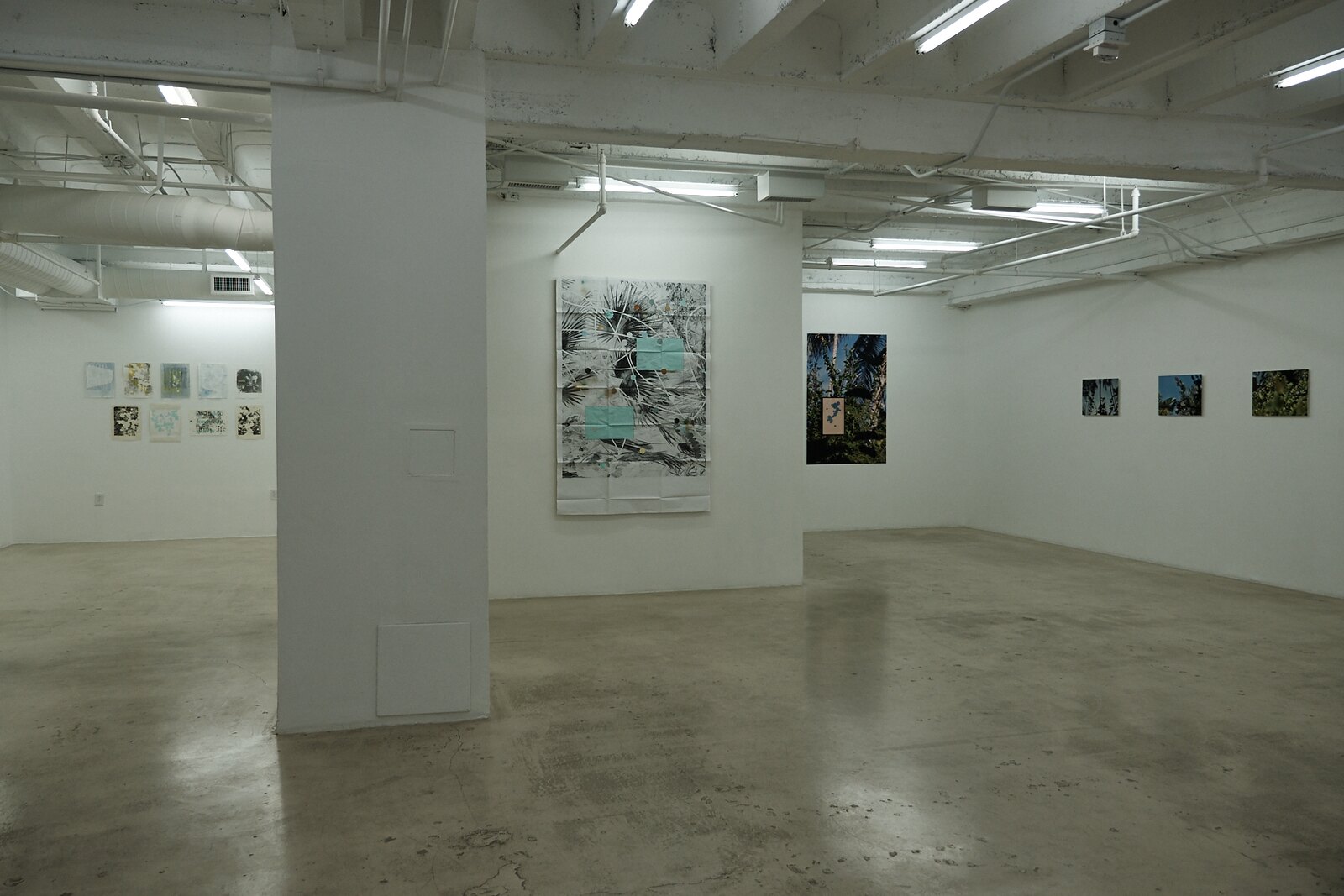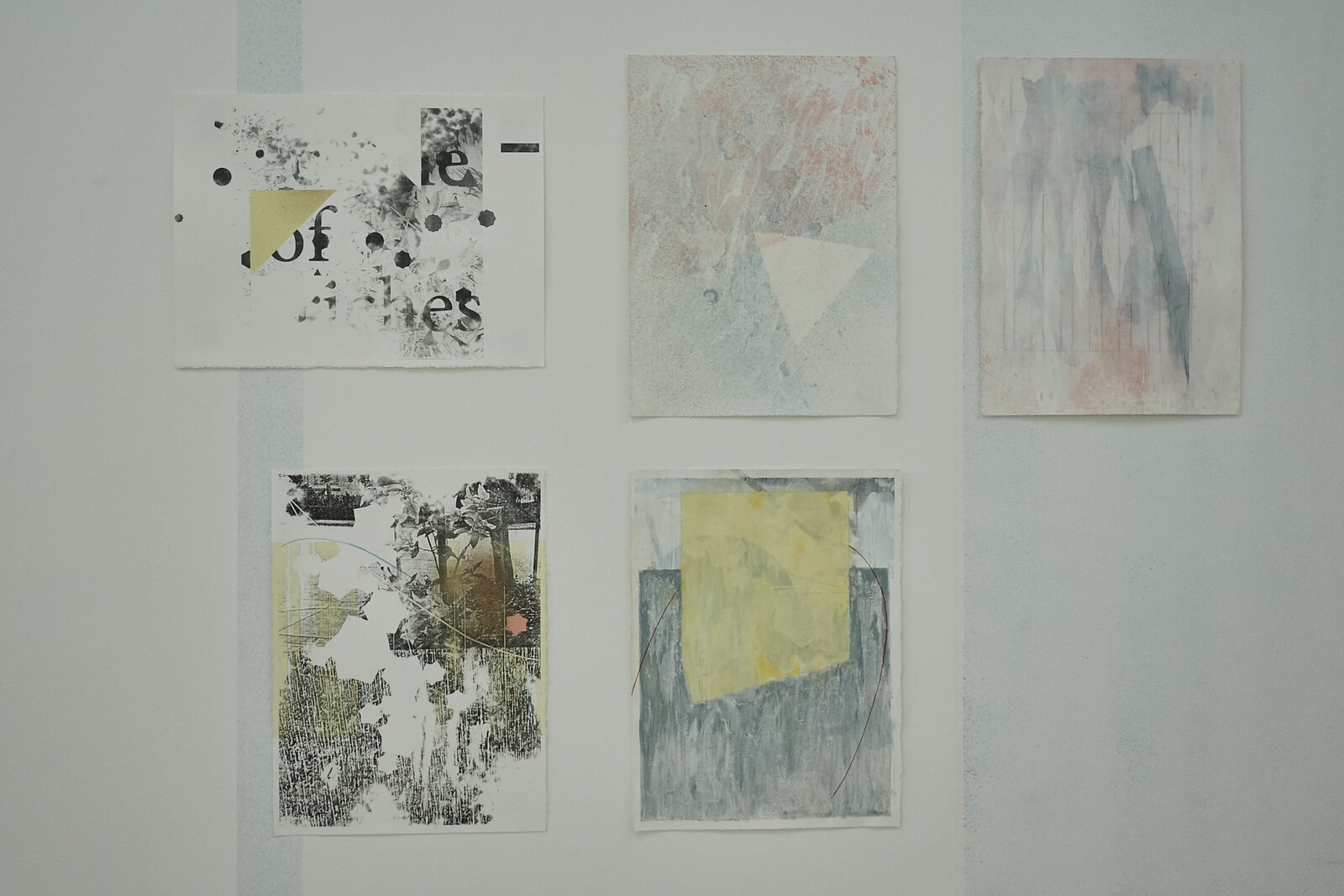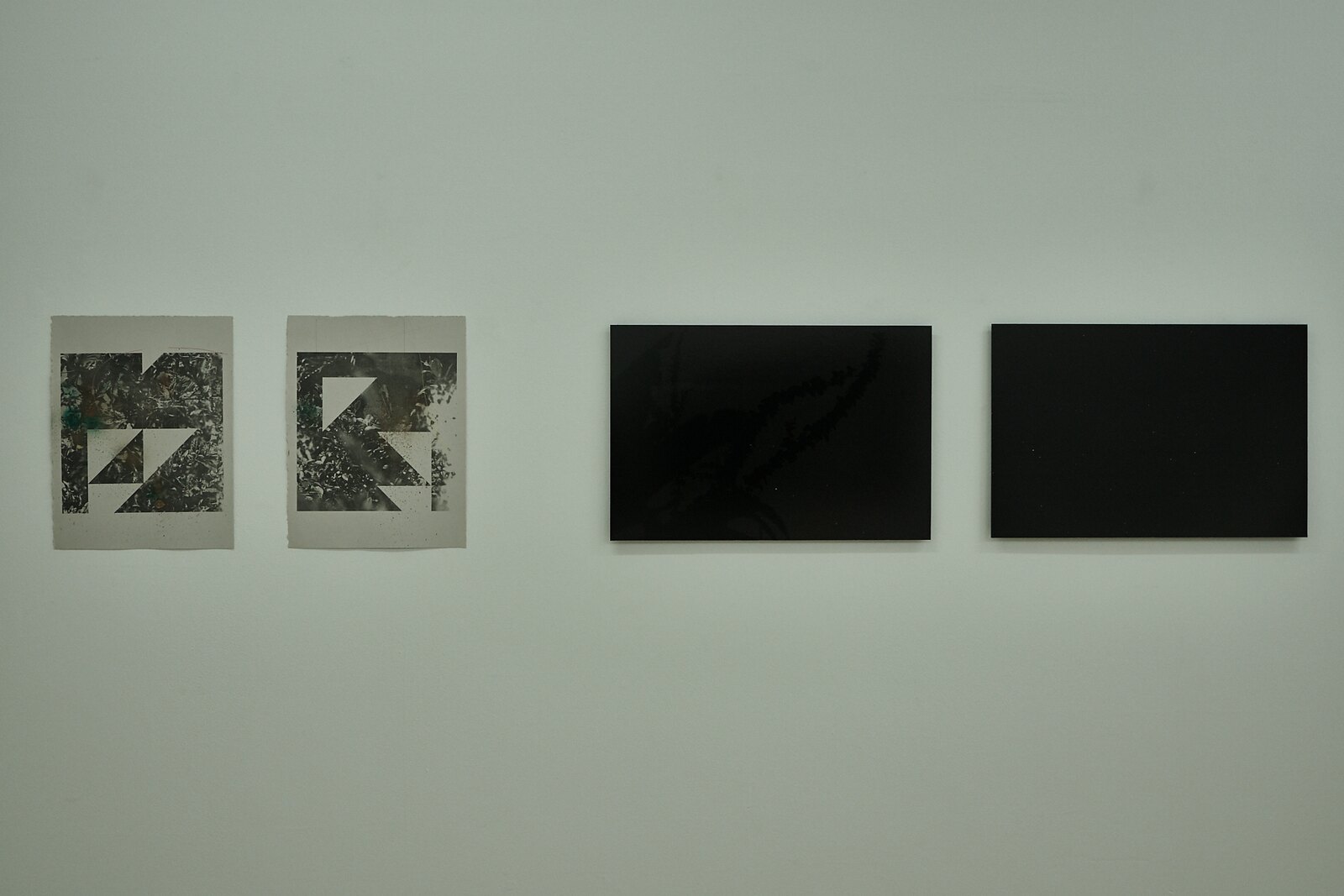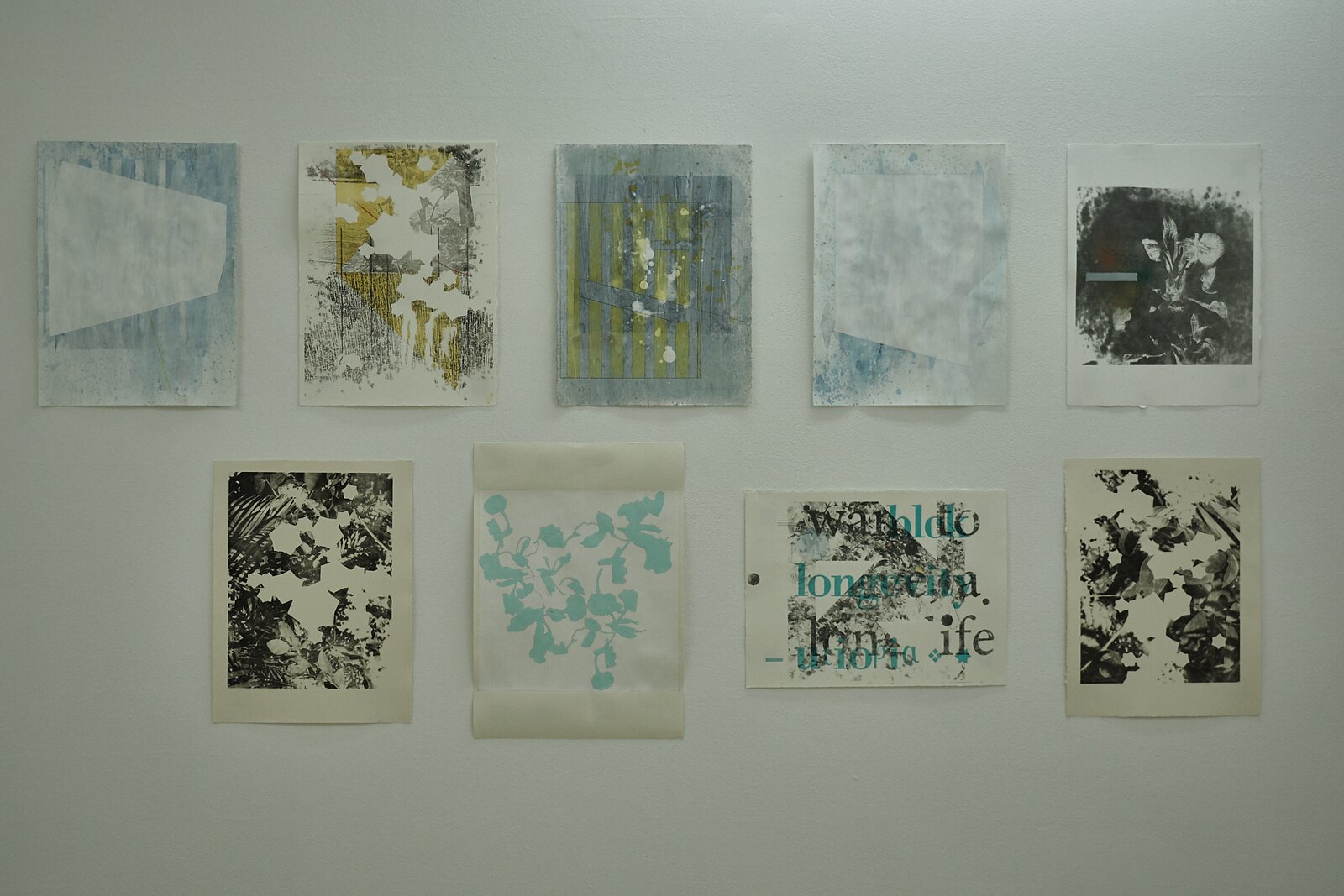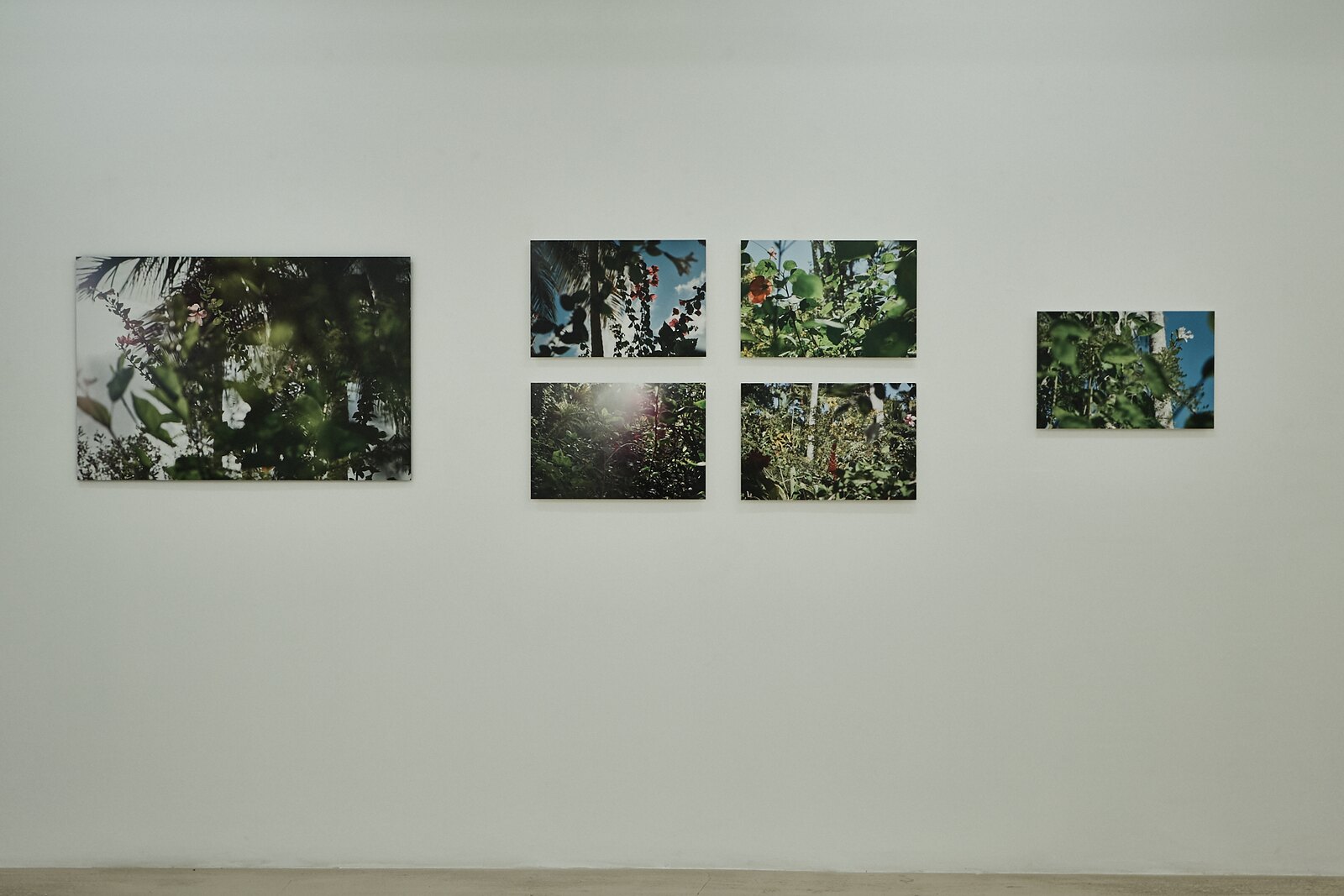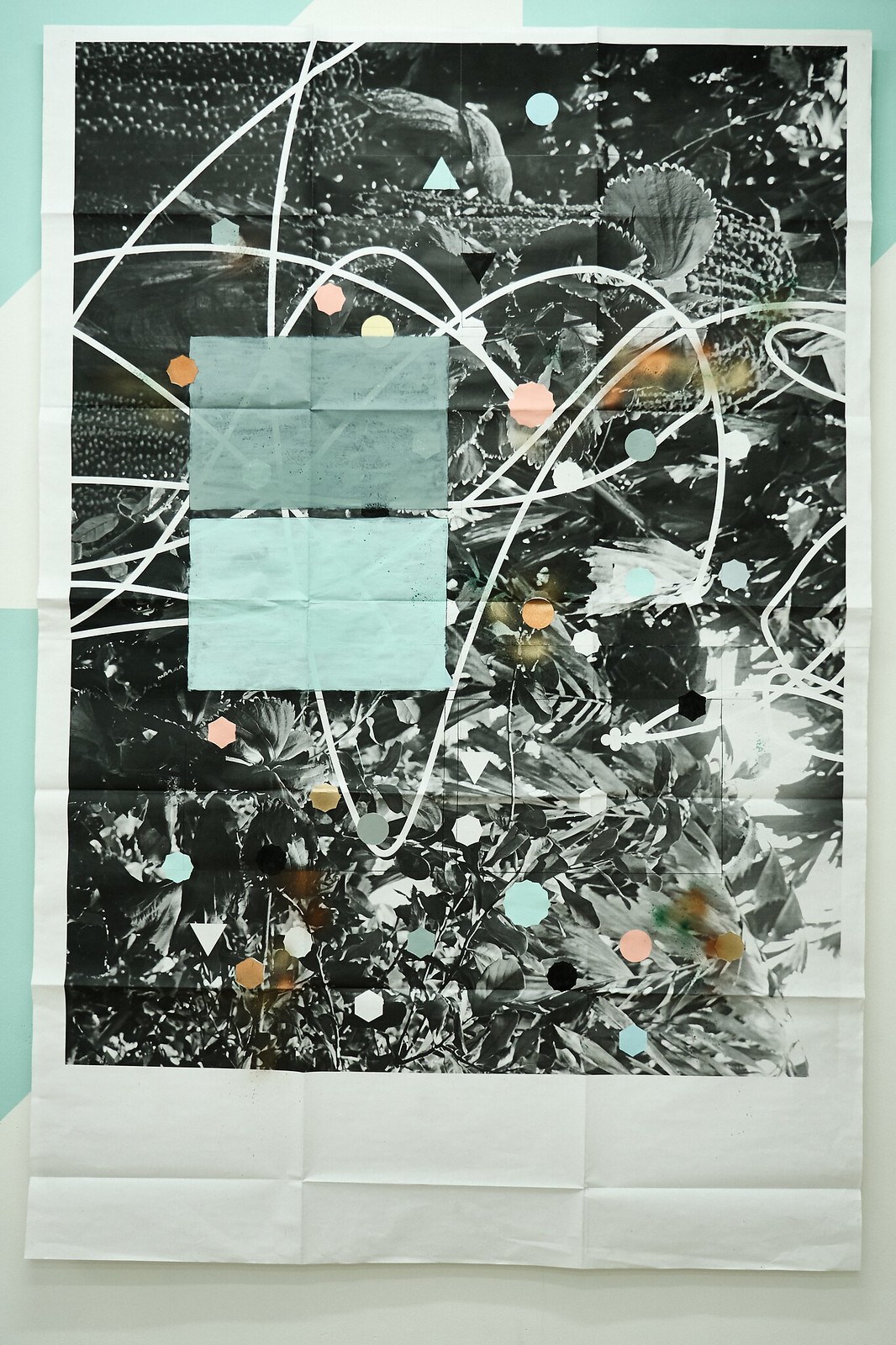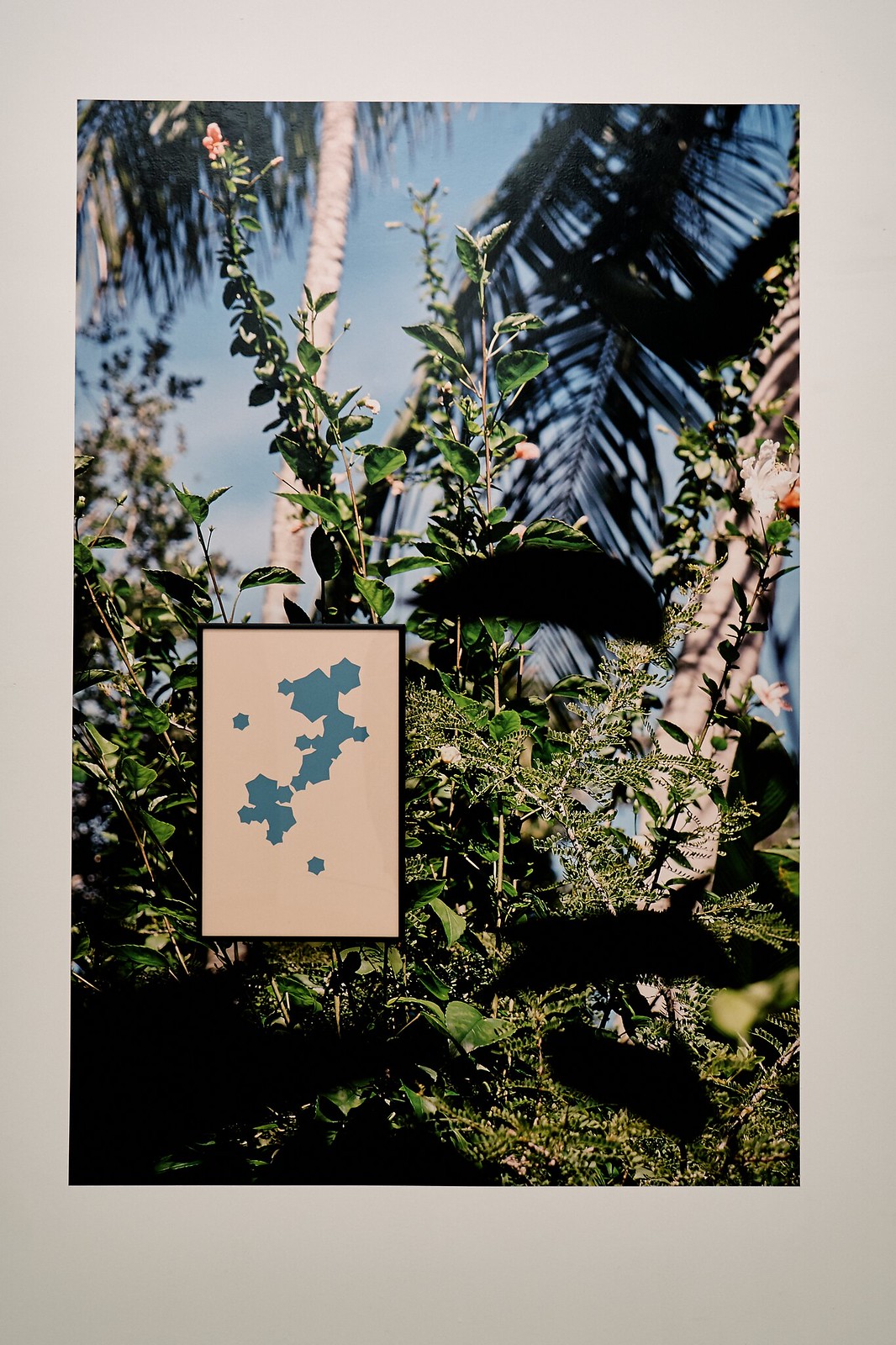List of works:
[googlepdf url=”http://dig.thenextfewhours.com/ag/wp-content/uploads/2017/10/DCG-Deployed-Conditional-and-Limited-Utopia-Checklist-Thumbnails.pdf” width=”50%” height=”710″]
Press Release:
David Castillo Gallery presents Deployed, Conditional, and Limited Utopia, a solo exhibition by Adler Guerrier.
Deployed, Conditional, and Limited Utopia builds a visual topography of the urban, subtropical conditions of Miami, reflecting upon these distinct environments as evidence of the cultural and political landscapes of the city. Human activity, and the turns of economic booms and busts, are insinuated throughout the works as artifacts—semi-manicured yards, chain link fences, power lines, pavement—hidden among rich vegetation; subjects that are treated as background. Guerrier, in many ways, plays the role of cultural cartographer, and the images themselves, physically folded, unfolded, and then displayed on the wall, have the look of maps laid out with landmarks noted in painted squares.
The architectures of Guerrier’s images are weighted with the politics of place and the conditions which bear that space’s values and outcomes. Impasse becomes an evocative theme within this selection of works on paper and photographs, where barriers hinder movement and subjects are captured through the blurred foregrounds of covering leaves. A flowering plant growing up and over a wall trespasses upon the photographer’s space, and ideas of things hidden, and things breaking through, build upon a narrative of transformation, both urban and social. For Guerrier, these concepts are seeded by the ideologies of the American Civil Rights Movement, where Martin Luther King Jr. and Malcolm X reflected upon the possibilities of the present as a catalyst towards building better outcomes. In a public debate at the Oxford Student Union in 1964, Malcom X famously commented: “…I, for one, will join in with anyone—I don’t care what color you are—as long as you want to change this miserable condition that exists on this earth.
To deploy Utopia is to bring it into effective action. And in this body of work Guerrier treats the Utopian impulse as an extension of both built and natural environments. These notions are reflected in the writings of French philosopher Henri Lefebvre, who imagined space as socially co-created alongside its physical construction, and imprinted upon by the populations which share in its development. Architecture, in the context of Lefebvre’s work, is an intrinsically political apparatus, and Guerrier treats these sites as ideological spaces that can be socially reimagined and recontextualized in the same vein.
The act of seeing, or acknowledging, can be revolutionary and transgressive; and in Deployed, Conditional, and Limited Utopia we see Guerrier’s gaze, how he witnesses and reinterprets Miami, home, and Utopia as the interconnected components in his personal concept of place. To look is everything; to see the possibility of these everyday, and sometimes degraded, sceneries is a first step in deploying action.
Adler Guerrier was born in Port-au-Prince, Haiti and lives and works in Miami, FL where he received his BFA from New World School of the Arts. Current exhibitions of the artist’s work include Pacific Standard Time’s “Relational Undercurrents: Contemporary Art of the Caribbean Archipelago,” at MOLAA, Long Beach, CA. Recent exhibitions include Fondation Clement, Martinique, France; History Miami Museum; and Barnes Foundation “Person of the Crowd: Contemporary Art of Flanerie” among others. He was a 2015 recipient of an Andy Warhol Foundation grant through its re-granting program. Guerrier’s solo exhibitions include PAMM Miami (2015). He has exhibited work at Vizcaya Museum and Gardens, Miami, FL; The Bass Museum, Miami Beach, FL; Harn Museum of Art, Gainseville, FL; and the 2008 Whitney Biennial among many other exhibitions. His works can be found in public collections including ICA Miami, PAMM Miami, and the Studio Museum in Harlem among others.
